Multi-language semantic search
Semantic search identifies product types from user queries and product data for the non-English languages mentioned below. This product type information is then used to optimize recall and ranking in various ways.

Language support
Bloomreach offers multilingual semantic capability in the following languages:
Europe: Albanian, Bulgarian, Croatian, Czech, Danish, Dutch, English, Estonian, Finnish, French, German, Greek, Hungarian, Irish, Italian, Latvian, Lithuanian, Maltese, Norwegian, Polish, Portuguese, Romanian, Russian, Serbian, Slovak, Slovenian, Spanish, Swedish, Ukrainian
Middle East: Arabic, Hebrew, Turkish
Asia: Chinese (Simplified), Chinese (Traditional), Indonesian, Japanese, Korean, Thai
Feature access
Multi-language semantic search is generally available starting September 18th, 2024. This feature is free to access and requires no extra integration steps.
If you wish to enable query relaxation to product type:
- Live customers can enable query relaxation on the dashboard.
- Integrating customers can access to query relaxation by default from October 7, 2024.
The above applies to all non-English languages. Note that Query relaxation to brand is not supported.
Semantic search examples
These examples show what Bloomreach’s semantic engine identifies as the product type.
Arabic
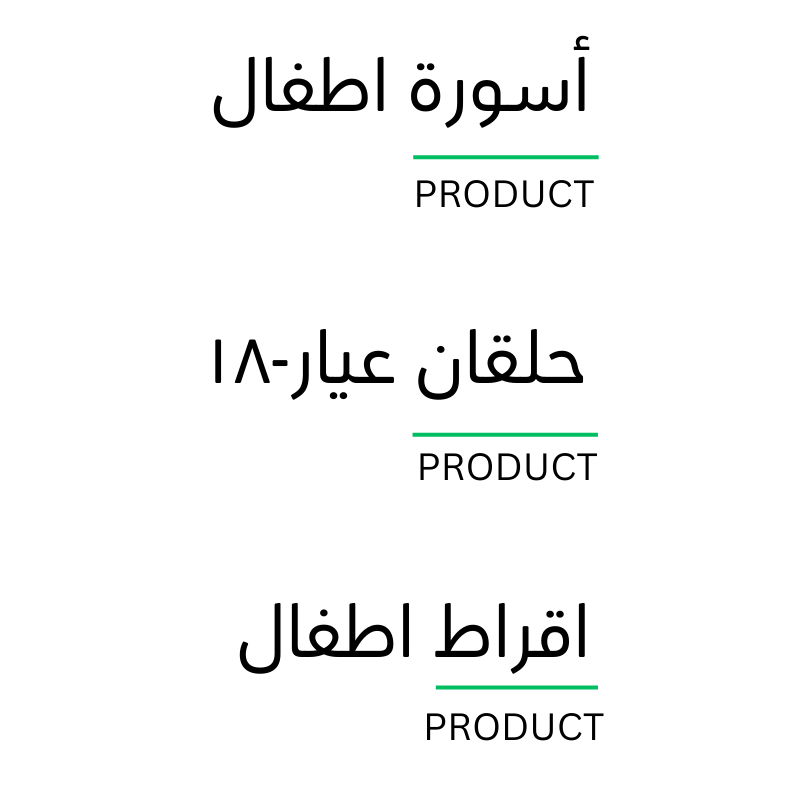
Danish
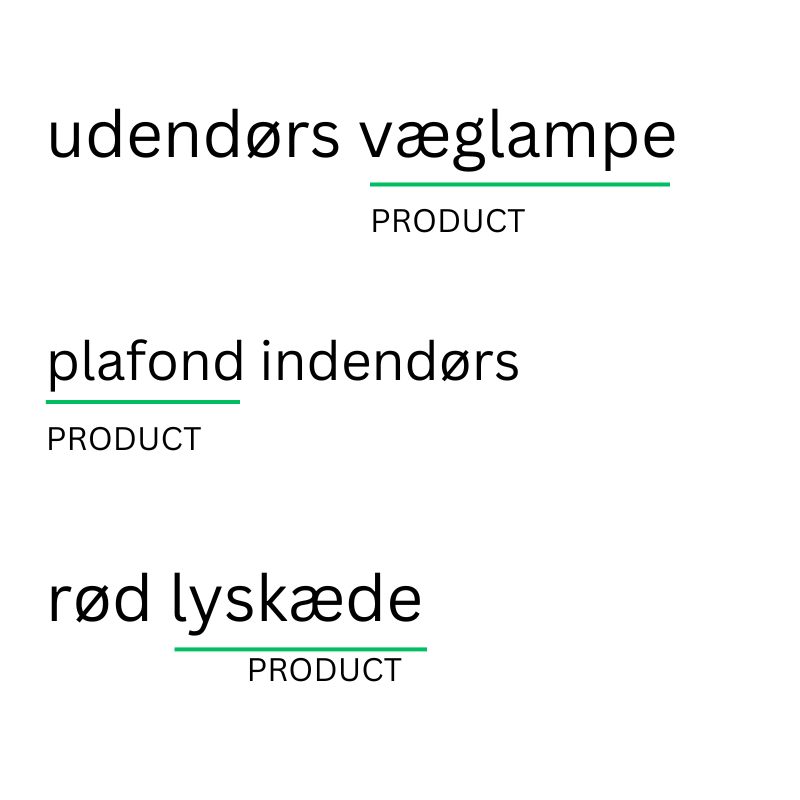
Dutch
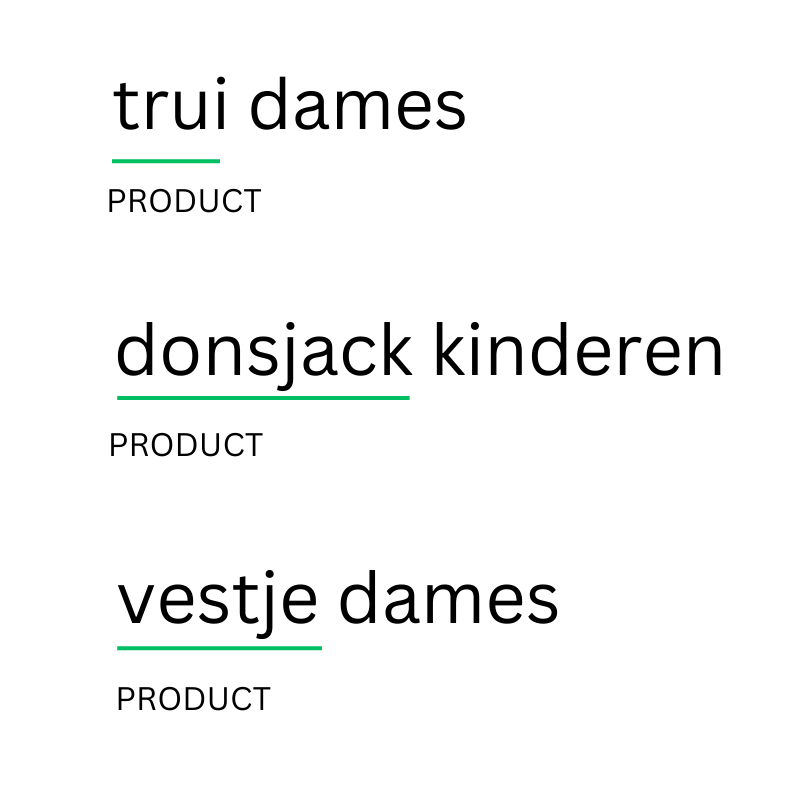
French
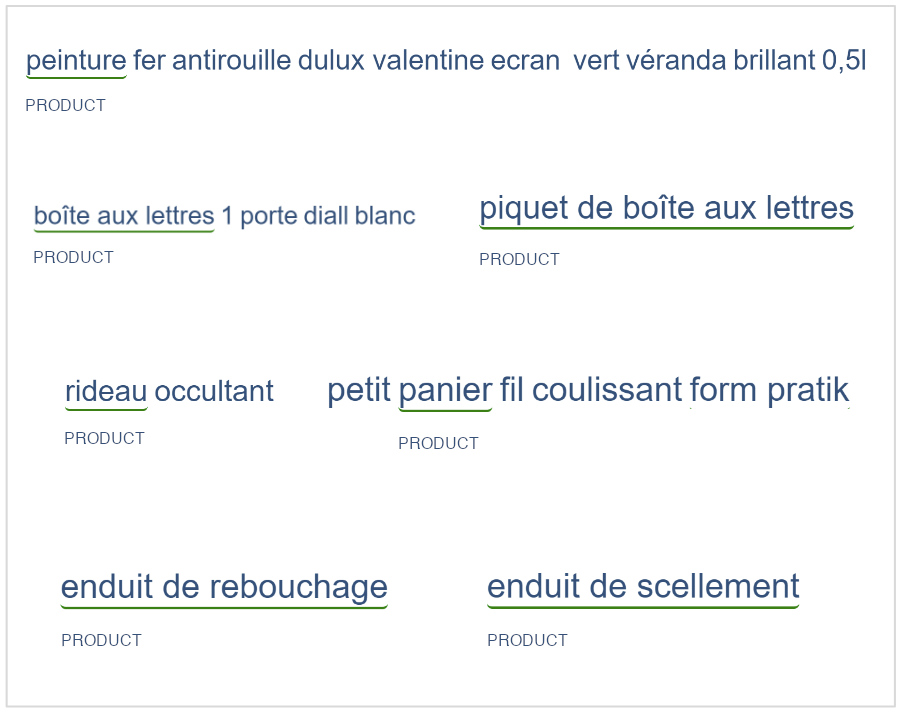
German
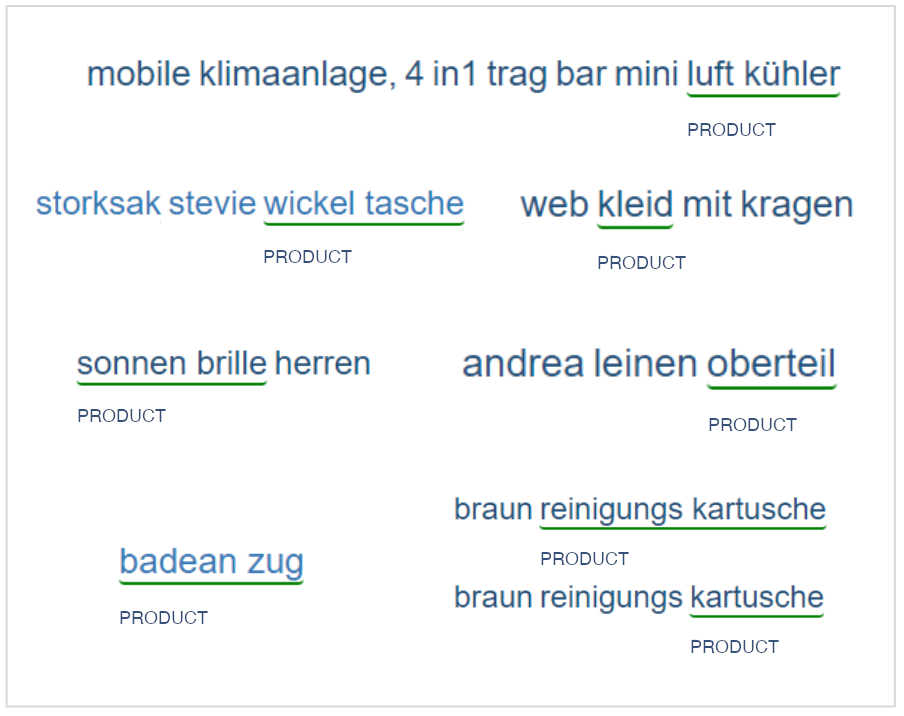
Hungarian
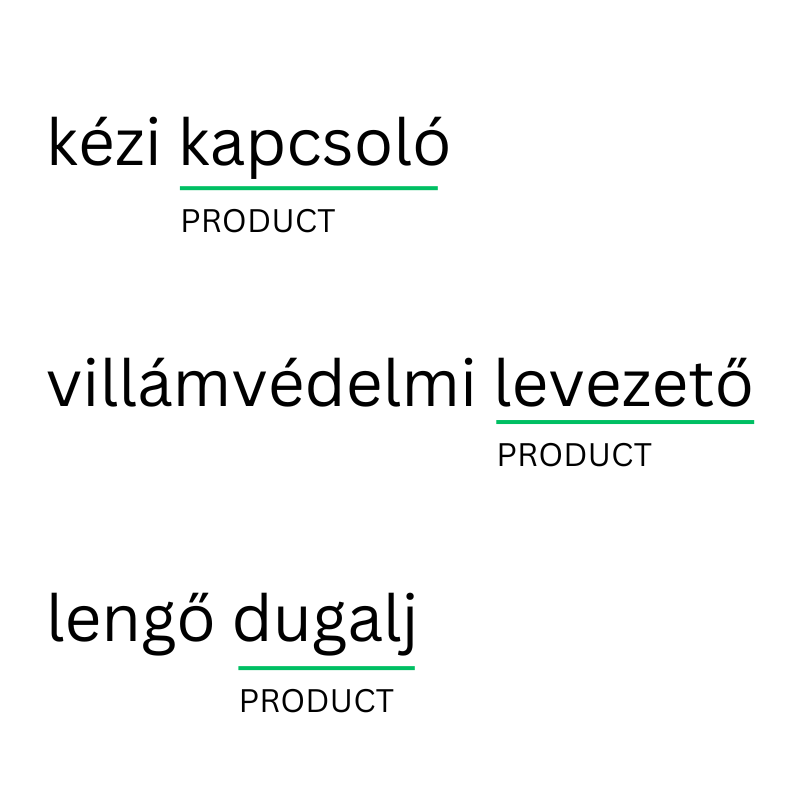
Italian
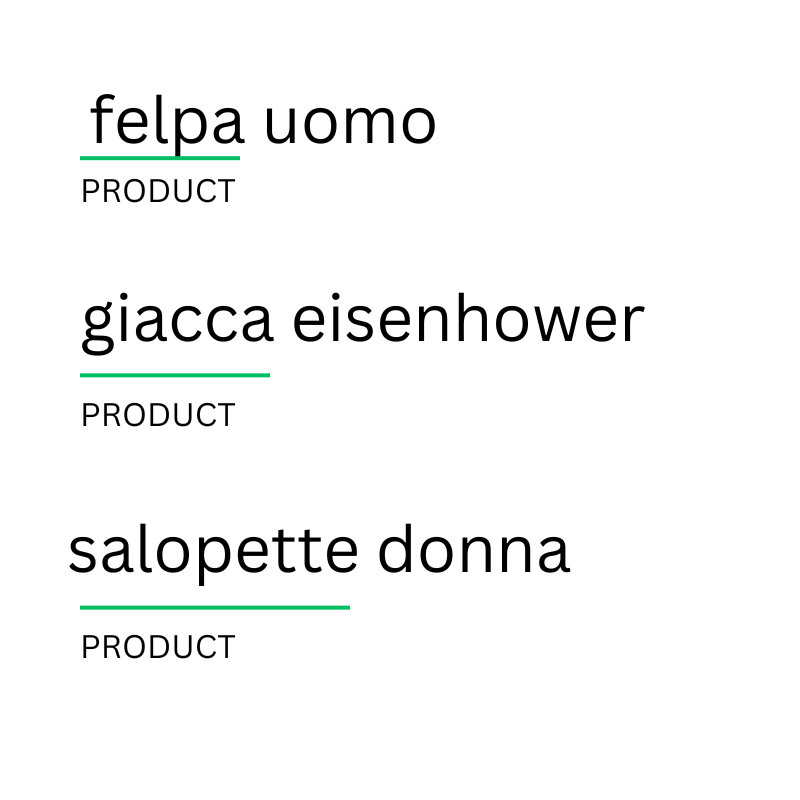
Norwegian
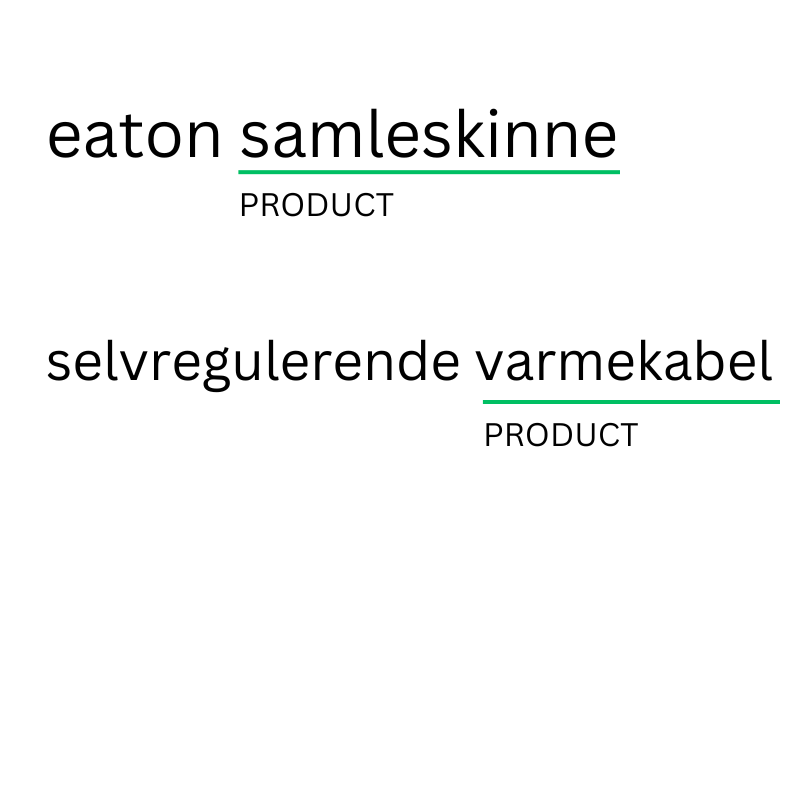
Polish
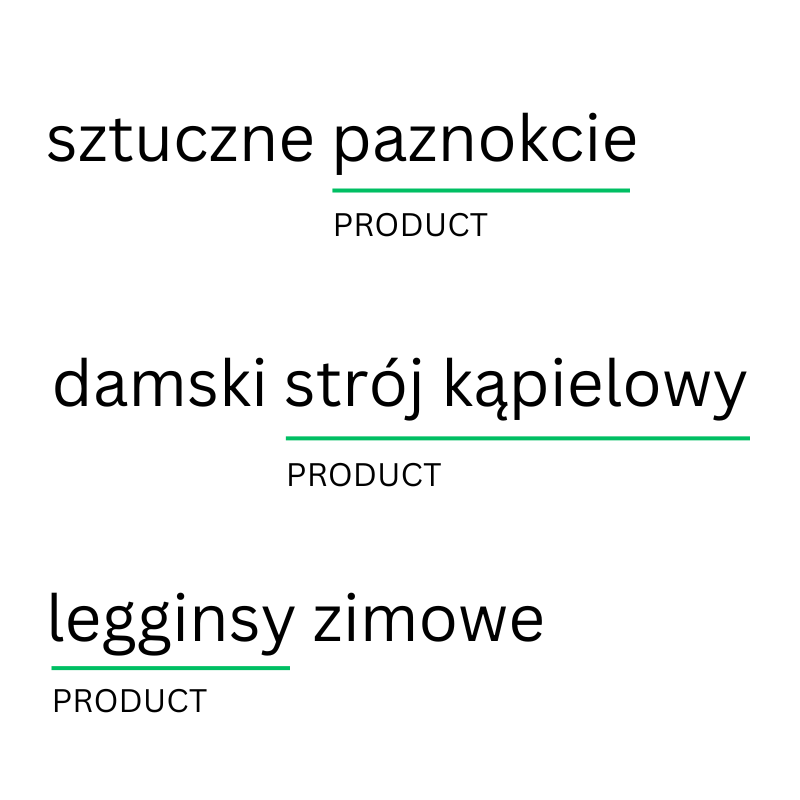
Spanish
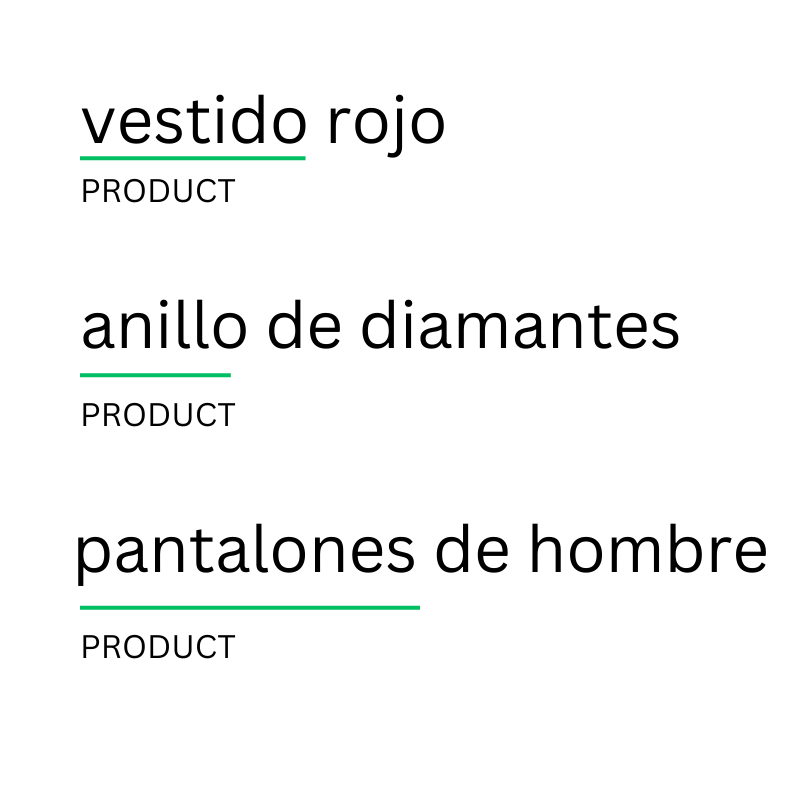
Search ranking optimization
Multi-language semantic engine optimizes search ranking in the following way:
- Product types are identified from the product feed and incoming user queries in real-time.
- Products that match the product type from the user query are boosted in ranking.
- This increases relevance near the top of the result set for all queries and especially benefits cases with less user behavior data, such as torso/tail queries.
French example
For example, a user searches for “blooma barbecue”. Without semantic understanding, some of the top products include barbecue accessories like “grilles”.
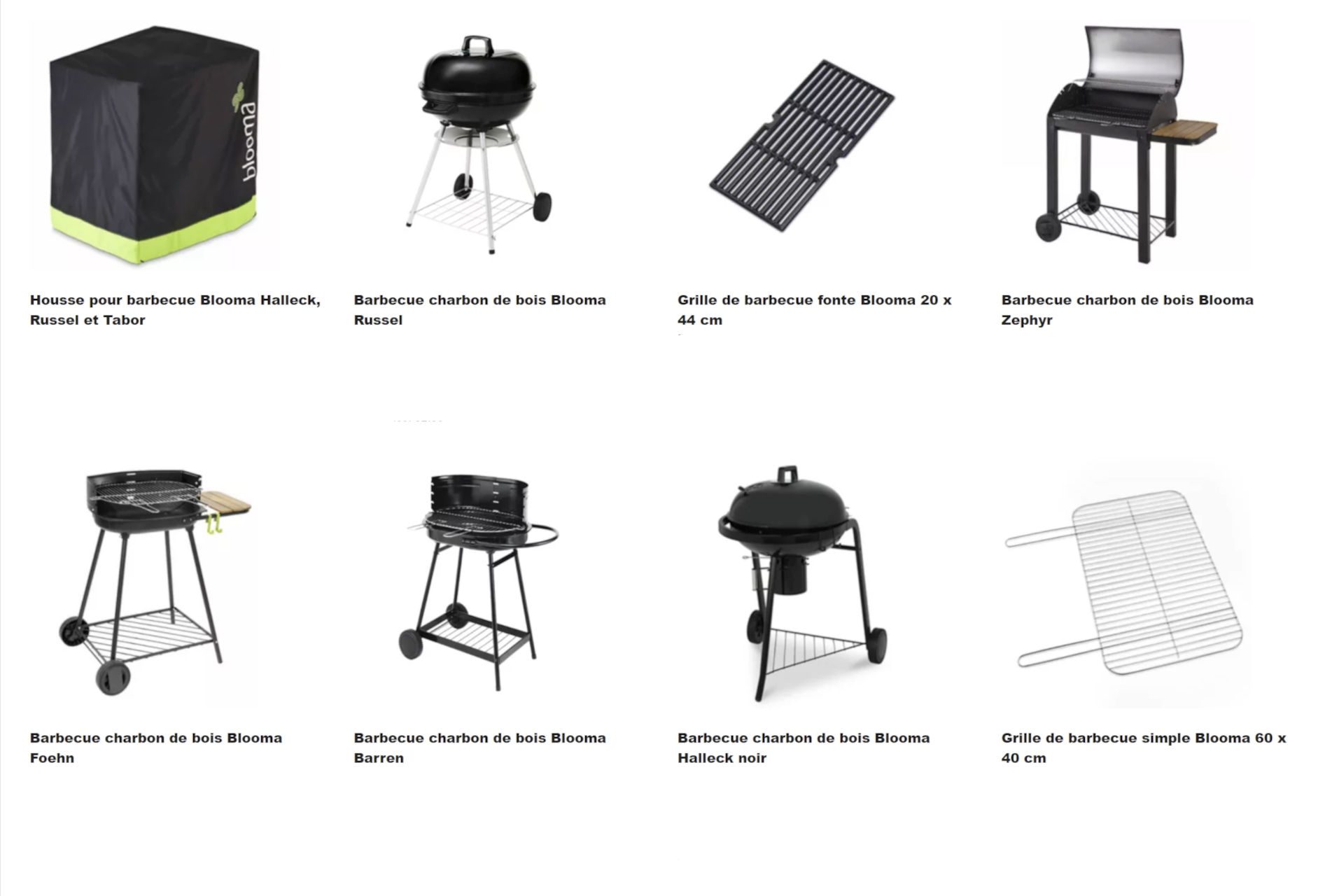
With semantic understanding, the product type is identified as “barbecue”, so the products of product type “barbecue” are boosted above the other products.
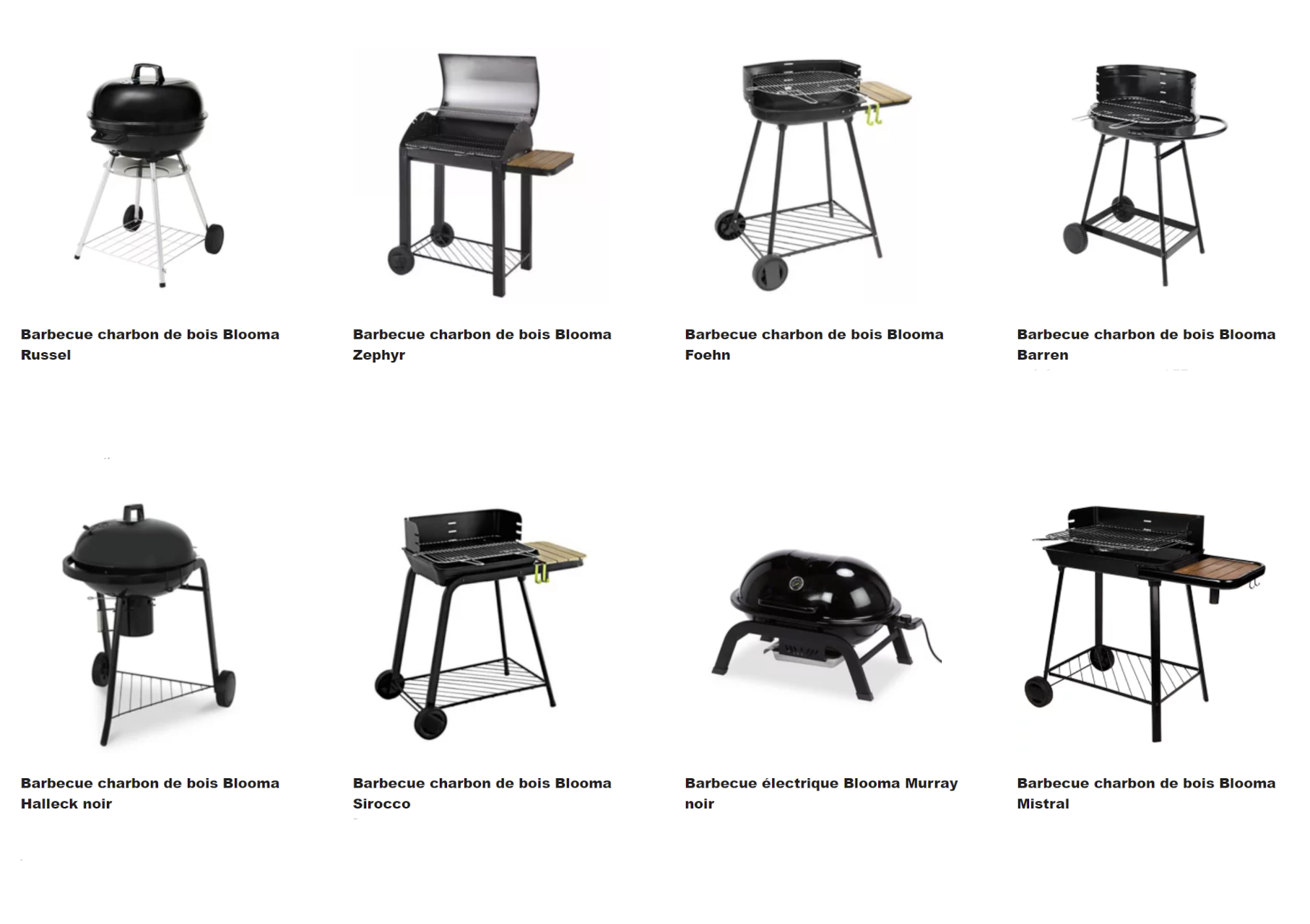
Polish example
For example, a user searches for “koldra” (comforter). Without Semantic Search, some top products may include other products with the “comforter” term in the product title.
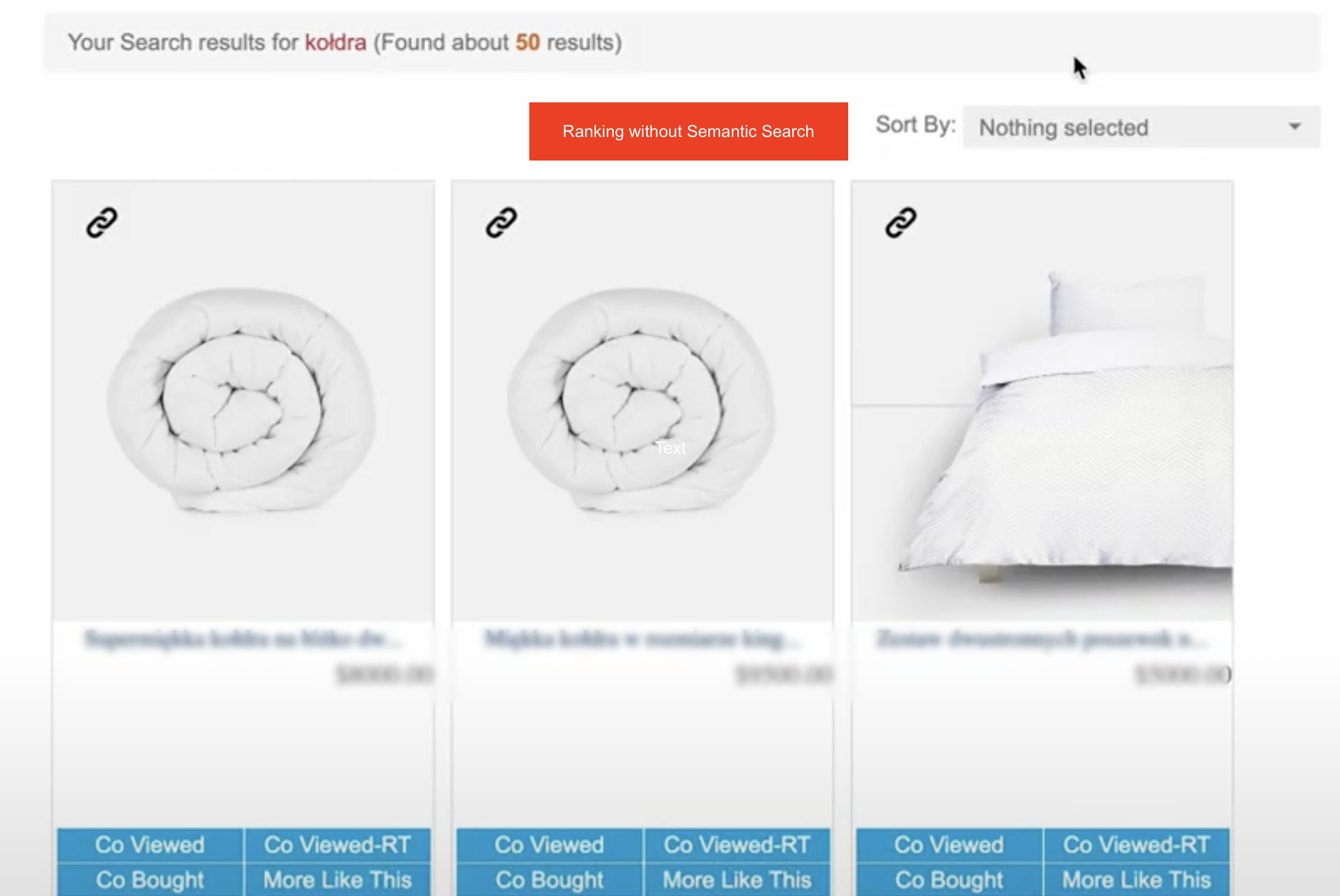
With Semantic Search, the product type is identified as “comforter,” and the products with the “comforter” product type are boosted in the recall.
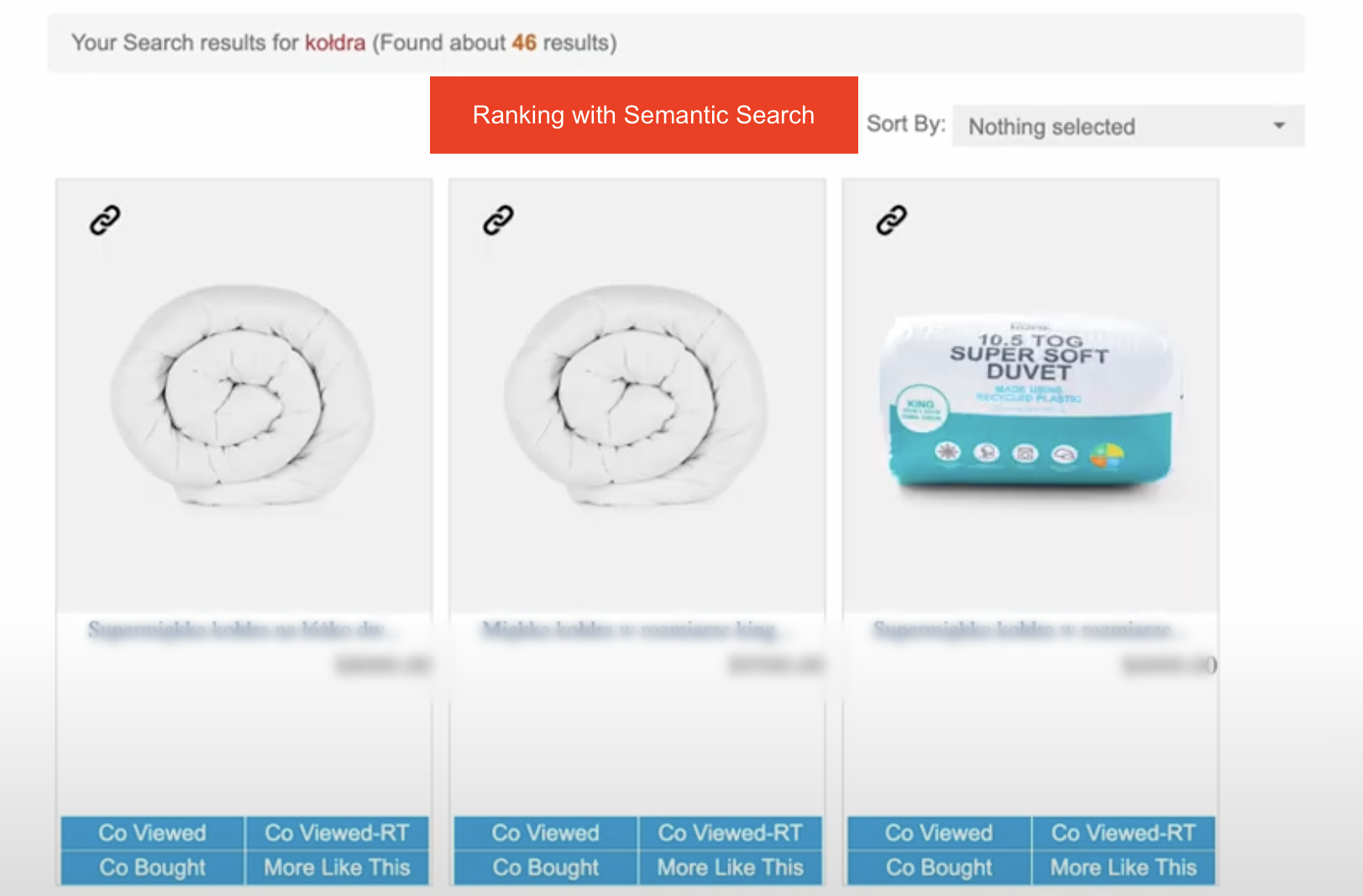
Search recall optimization
Multi-language semantic engine optimizes search recall in the following way:
- If no product match is found for a user query, the query is relaxed to show other products that match the identified product type.
- This helps reduce the null search result rate, improves user experience, and increases conversions by showing related products instead of a null result.
For instance, when a user searches for "fauteuil rio" and no or fewer than three matches are found, the semantic engine identifies the product type as "fauteuil" (armchair) and expands the search to display other armchairs.
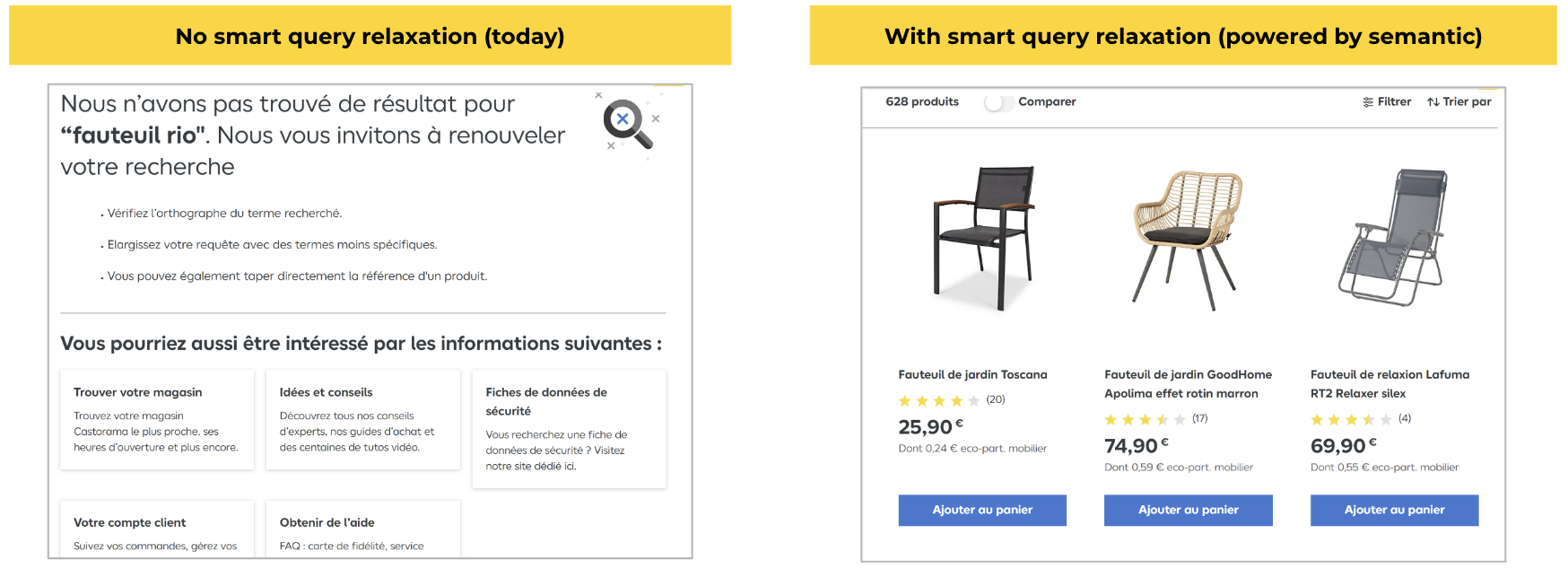
Note
The API response also includes information that the query has been relaxed so it can be displayed to the end user to avoid confusion when they see related products instead of exact matches.
Handling of compound words
Your shoppers might search for queries in a compound form, which are usually non-English queries. Multi-language semantic search uses a splitter to split such compound queries to find matches. This improves the recall precision for German and Finnish compound searches.
For example, without a splitter, a German query "klavier hocker" (piano stool) won't match a product titled "deluxe klavierhocker," leading to no results. However, with a splitter, "deluxe klavierhocker" is split into "deluxe klavier hocker," allowing it to match the query "klavier hocker."
Similarly, the splitter helps match Finnish compound words. For instance, it splits "urheilukuvaaja" into "urheilu kuvaaja" to improve the search recall.
Updated 6 months ago
